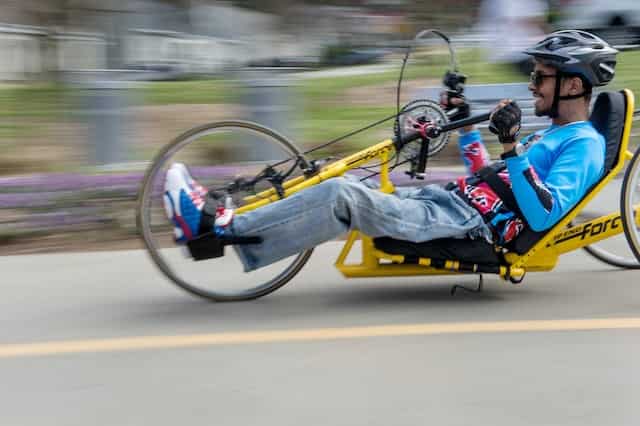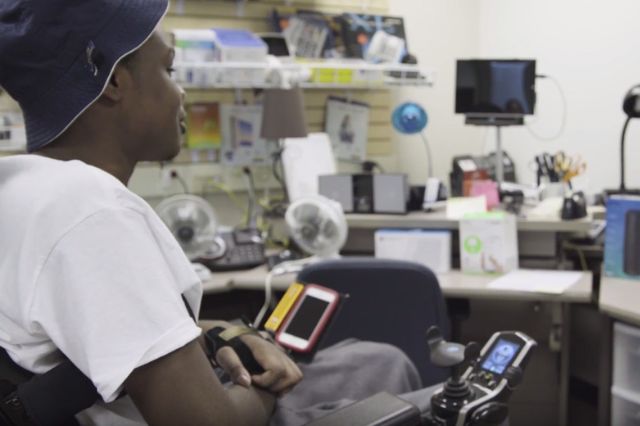Psychological Therapy for Chronic Pain at Shepherd Center
Comprehensive psychological treatments for managing the thoughts, emotions, and behaviors that accompany chronic pain
Stress and chronic pain have a complex relationship.
Stress usually accompanies a chronic painful condition and can also worsen chronic pain, leading to increased pain and further health problems such as depression or anxiety.
At the Dean Stoud Spine and Pain Institute at Shepherd Center, our comprehensive approach to pain management addresses these psychological and emotional responses to pain, helping you to break the stress and chronic pain cycle.
Our licensed psychologist specializes in cognitive and behavioral approaches to help cope with chronic pain. In addition to long-term pain relief, psychological therapy can also help strengthen your body, mind, and spirit.
What to Expect in a Pain Psychology Session
Your first session will include a biopsychosocial assessment to understand the biological, psychological, and social factors contributing to your chronic pain. Following this assessment, your pain psychologist will work with you to develop an individually tailored treatment plan to meet your goals and optimize outcomes. This treatment plan may include:
- Understanding how your body reacts physically to stress and how that affects pain and illness.
- Exploring the purpose of stress and "good" vs. "bad" stress.
- Decreasing physical muscular tension to improve pain management.
- Looking at how to sleep better.
- Learning new relaxation techniques.
- Changing your habits to improve pain management.
- Getting support from others in dealing with your pain.
- Making your thoughts work more effectively to manage and cope with pain.
- Using complementary treatment to reduce pain medication.
- Increasing physical activity and related functioning in various areas of life.
Chronic Pain Psychology Techniques and Treatments
Using an integrative psychotherapy model, pain psychology treatments are individualized and flexible, combining holistic techniques and therapies. While treatment varies for everyone, most individuals can learn what they need in 8 to 10 sessions. Referrals for long-term psychological needs can be given if necessary.
One in 14 Americans experience chronic pain that interferes with their daily activities. [i] According to the American Psychological Association, Cognitive Behavioral Therapy (CBT) is one of the most effective strategies to help your body manage chronic pain. This Gold Standard Treatment [ii] helps you work with your mind and body to tame the pain response. Together we’ll work on changing the cycle of thoughts, feelings, and behaviors responsible for pain. CBT incorporates skills to retrain your brain, understand the power of your thoughts and actions in your pain response, and to create strategies that help.
[i] https://www.apa.org/monitor/2022/09/understanding-managing-pain
[ii] Skelly, A. C., Chou, R., Dettori, J. R., Turner, J. A., Friedly, J. L., Rundell, S. D., Fu, R., Brodt, E. D., Wasson, N., Winter, C., & Ferguson, A. J. R. (2018). Noninvasive Nonpharmacological Treatment for Chronic Pain: A Systematic Review. Agency for Healthcare Research and Quality (US).
Chronic pain can often cause unconscious responses within the body, such as shallow breathing or muscle tension. Using electrical sensors attached to your body, the biofeedback instrument monitors your body’s psychological activity of breathing, blood flow, heart rate, skin conductance, and muscle tension. Using these measurements as a guide, your therapist can help you adjust your body to recognize these involuntary physical reactions while decreasing chronic pain. The Pain Clinic can connect you to a biofeedback specialist.
Individuals who have experienced a traumatic event or injury are more likely to experience post-traumatic stress disorder (PTSD) and chronic pain. Our pain psychologist develops a treatment plan that addresses both components.
Focusing on reducing stress and its negative impacts, mindfulness-based techniques include meditation or mind and body exercise to help you achieve a state of relaxation. In doing so, you learn techniques to cope with chronic pain, reducing pain intensity and improving overall well-being and quality of life.
Since psychological and emotional factors can strongly influence chronic pain relief, a psychological evaluation can be performed before a chronic pain procedure like a spinal cord stimulator implant or intrathecal pump. This evaluation includes interview and testing techniques to identify emotional, behavioral, and psychological difficulties that can negatively impact procedure outcomes.
Dr. Magnoli skillfully guides me with keen insight and attention to the many elements of both my acute and chronic pain. With her support and the tools she provides to keep the mind-body connection strong, the journey seems a lot less treacherous.
Appointments and Referrals for the Pain Institute
Located within Shepherd Center in Atlanta, the Pain Institute offers convenient access and free parking. A variety of scheduling options are provided, including repeat appointment times when available. As a one-stop shop for chronic pain, patients have access to the most comprehensive pain services, from a visit with a dedicated pain specialist to physical therapy, pain psychology, and more.
Dean Stroud Spine and Pain Institute at Shepherd Center
Contact Us
Our Address
2020 Peachtree Road NW
Atlanta, GA 30309-1465
Clinic Hours
Monday to Thursday
8:00 a.m. – 4:00 p.m. ET
Friday
8:30 a.m. - Noon ET




